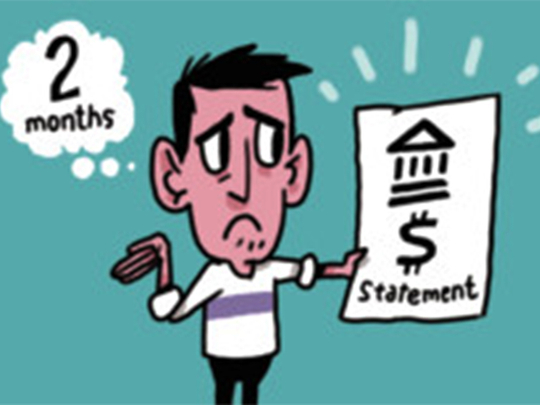
I am often surprised by what people describe as hidden charges or fees. It appears to me that if they were not aware of the charges, then they must be hidden.
In many cases, they are not.
In fact, those charges are disclosed as every step of your banking experience. All you need to do is ask and pay attention.
As a rule, if you are borrowing money either in the form of paying with a credit card or using a personal loan, expect a price. How much is this price differs from one bank to another. And this difference is the reason you should always shop around.
If you’re not talking about this price upfront, it is like you’re buying something without checking the price tag. So what should you ask if you are getting into any loan or credit line. Here are three main questions.
■ What is the interest rate?
No bank or lender will give you money for free — there must be an interest rate charged if you don’t pay back the money within a set period of time in case of a credit card. In case of a personal loan, an interest is charged once the money is deposited in your account.
Your understanding of this interest and how it is calculated is an essential part of your shopping experience for a loan or credit card. You also must ask about whether the rate is fixed or variable.
For example, with credit cards, the rates are rarely fixed. You might get an introductory rate, but after this rate expires, you move to a much higher — and probably variable — rate.
So if you see a credit card with 0 per cent APR (annual percentage rate) for a period of time, ask about the potential rate afterward. With variable rates, you also should keep an eye out on the rate changes. These are typically communicated to you along with your card statement.
Know what other lenders are offering and if your card is carrying a much higher rate — and you typically have an outstanding balance — consider switching your balance to a different card.
■ What are the fees, charges and penalties?
Again, borrowed money is not free. If you are taking out a personal loan, financing a card, or getting a debit card, you should first wonder how much this service will cost you. Asking about ATM charges, fees and other potential penalties in case you don’t pay what you owe should be a starting point in your conversation with the bank.
Most banks will have a list of fees and charges that you could review. But doing so, you are less likely to be surprised when you find that setting an auto payment, for example, carries a charge.
You also should ask about how changes in these fees will be communicated to you. By doing so, you will be able to monitor these changes.
Finally, know what is standard and what’s not. Banks are quick to claim that anything they charge is a standard policy. That could be true or not. If you shop around, you will be able to find out quickly.
For example, any loan that comes with an early repayment penalty isn’t a good deal — whether you accept or not. The least you could do at the initial stage is to know what you’re signing up for and know how you can get out of it, if you need to.
■ What are the alternatives?
Salespeople often won’t offer alternatives if they see you close to accepting what’s on the table. It is an established sales approach of not offering too many choices that could lead to distraction and delay.
You must be the one who asks for alternatives. For example, if you are offered a credit card with great perks, but it comes with an annual fee, ask about card that don’t have annual fees.
If your checking account requires a minimum balance to remain free, ask how you could get rid of this fee. Asking for alternatives places the burden on the salesperson to come up with solutions for you. Those solutions will help you make a more informed decision and reduce your cost in the process.
Ask the right questions
■ Ask about rates and whether they are fixed or variable;
■ Check the fees, charges and penalties; and
■ Inquire about the alternatives.
The writer, a former Gulf News Business Features Editor, is a Seattle-based editor.











